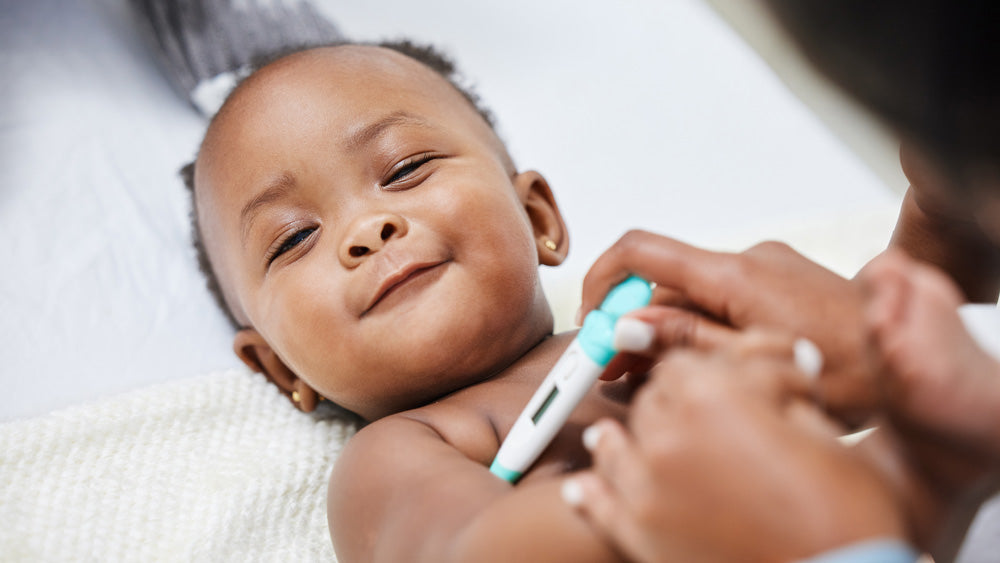When your toddler feels warmer than usual, it may be a sign of fever, which is a natural response of their immune system to infection. While it's often not serious, knowing how to accurately check your toddler's temperature is crucial for managing their care effectively.
Types of Thermometers and Their Use:
- Rectal Thermometers: Provides the most accurate readings for children up to 3 years old. It's important to use this method correctly to avoid discomfort.
- Oral Thermometers: Best for children older than 4 years. Make sure your little one hasn't eaten or drunk anything recently to ensure an accurate reading.
- Axillary (Under-the-Arm) Thermometers: These are easier to use but may provide less accurate readings. Best for a quick preliminary check.
- Ear Thermometers: Suitable for children over 6 months old, but correct placement in the ear canal is crucial.
- Forehead Thermometers: Convenient for children of all ages but can be expensive. These thermometers measure the infrared heat waves emitted from the skin.
- Pacifier Thermometers and Fever Strips: While convenient, especially for infants, these are generally less accurate and should not be relied on for precise measurements.
Effective Techniques for Taking Your Toddler's Temperature:
- Newborns and Infants: Use a rectal thermometer for the most precise readings. Lubricate the tip, insert it gently into the rectum, and hold it securely until the thermometer signals that it's done.
- Babies and Toddlers: For ear and forehead thermometers, ensure the device is correctly calibrated and follow the manufacturer's instructions closely.
- Older Toddlers: Oral and under-the-arm thermometers can be introduced. Teach your child to hold the thermometer under the tongue with their mouth closed for an accurate oral reading.
When to Consult a Doctor:
- Infants under 3 months: A fever might be more serious. Seek immediate medical attention if the rectal temperature is 38°C or higher.
- Toddlers: If a fever of 38°C persists for more than 24 hours or is accompanied by symptoms like lethargy, irritability, vomiting, rash, or difficulty breathing, contact your pediatrician.
Preventing and Managing Fever:
- Hydration: Keeping your child well-hydrated helps cool their body and fight the infection.
- Rest: Ensure your child gets plenty of rest, as sleep aids recovery.
- Medication: Use children's acetaminophen or ibuprofen to relieve discomfort, following dosage guidelines based on the child's age and weight.

